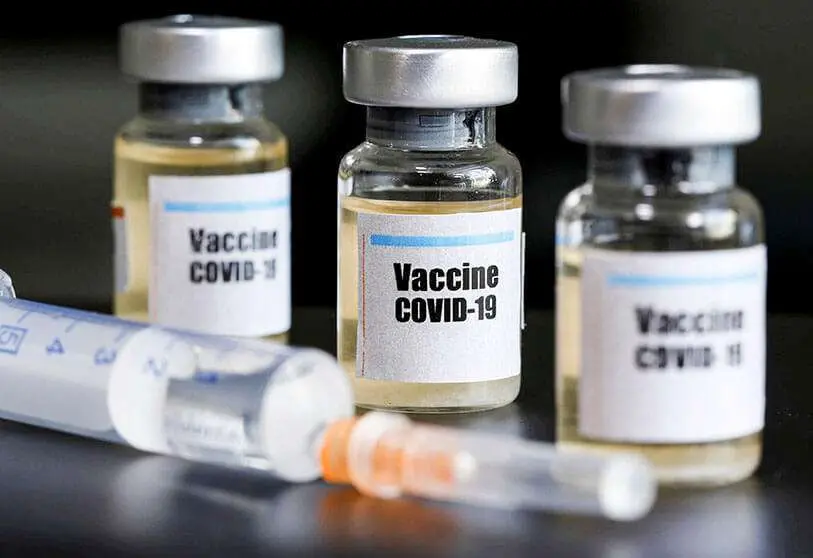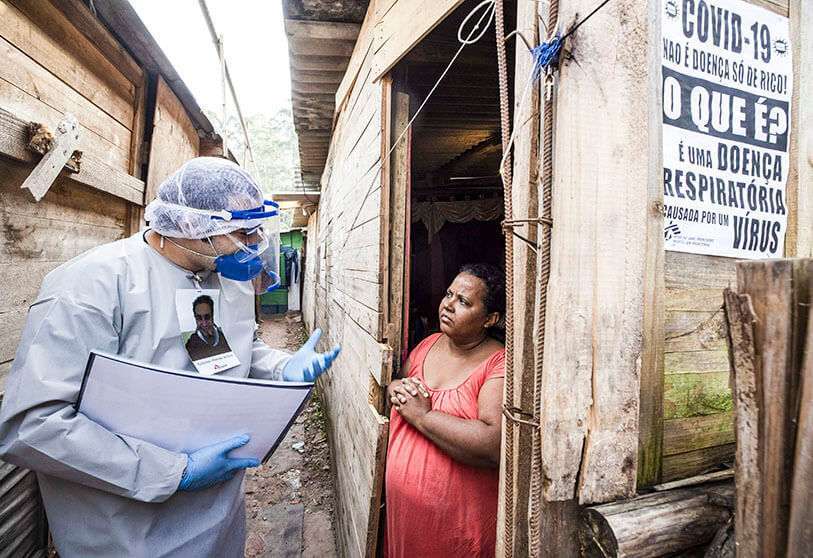Oxford's COVID-19 vaccine project to begin testing in Brazil

The potential coronavirus vaccine being worked on by Oxford University in the UK will begin testing on patients in Brazil later this month, the Brazilian Health Ministry confirmed on Wednesday.
Brazil will have 2,000 volunteers who did not come into contact with the disease in both Rio de Janeiro and São Paulo, the two cities most affected by the pandemic in the South American country. In this way, it is included in the international strategy of vaccine development and will be the first country to carry out the Oxford tests, in addition to the United Kingdom itself, as reported by the prestigious media O Globo and confirmed by the Carioca Ministry of Health.
The National Health Surveillance Agency (Anvisa) gave the green light to this strategy and the studies will be conducted in São Paulo by the Reference Center for Special Immunobiologicals at the Federal University of São Paulo.
In an extra edition of the Official Journal of the Union (OJ), this body has indicated that in order to carry out any clinical research involving human beings, laboratories necessarily need the authorisation of Research Ethics Committees (REC) or the National Research Ethics Committee (NREC).“Initial non-clinical studies in animals and Phase I clinical studies in humans to evaluate the safety of the vaccine were carried out in England and the results demonstrated that its safety profile was acceptable.” explained Anvisa in an official note.
The medical infrastructure and equipment will be funded by the Lemann Foundation, and the first 1,000 volunteers in São Paulo will be recruited by the Federal University itself; while the other 1,000 people will take part in the trials in Rio de Janeiro. The study will be carried out using a simple method: volunteers will be divided into two groups, one of which will receive the vaccine and the other a placebo.
The University of Oxford's vaccine was created from a chimpanzee adenovirus. The formula is based on the so-called viral vector, i.e. a virus other than Sars-CoV-2 (which causes COVID-19) in which the genetic sequence of the new coronavirus is cloned to stimulate immune responses. The first phases of work in the United Kingdom were quite encouraging in this respect.
Among the more than 70 immunizers being developed around the world today, this is understood to be the most advanced. The Oxford vaccine is based on previous studies for Severe Acute Respiratory Syndrome (SARS) and Middle East Respiratory Syndrome (MERS), also generated by a coronavirus. This way, the safety of this remedy was partially tested, which allowed to accelerate the process, entering this week the third phase of clinical trials.
The vaccine produced by the British university was included in a study by the Morgan Stanley investment bank, which mapped 110 searches for an immunising formula, and is considered one of the leading candidates to cure COVID-19 disease, which is ravaging the world and has already left more than 386,000 dead and more than six million cases diagnosed worldwide. Precisely, Brazil is being hit hard by the current health crisis and has more than 32,500 deaths and more than 584,000 affected.

This latest initiative is intended to determine the safety and effectiveness of the immunizer. Meanwhile, it has already been clarified by those responsible that the human clinical trials conducted within the British research proved to be safe.
Natália Pasternak Taschner, a researcher at the Vaccine Development Laboratory at the University of São Paulo's Institute of Biomedical Sciences, told O Globo that this initiative "the news comes at a good time not only because of the worsening pandemic in Brazil, but also because it helps to shed light on Brazilian scientific capacity". "One of the main advantages for Brazil is the fact that it is part of an international study. It is an important contribution at a time when the country has a bad international image, as the pandemic is managing extremely poorly and this puts everyone in danger,“ analysed the researcher and also a columnist on the blog A Hora da Ciência.
The tests of the British vaccine in Brazil are contrary to the strategy of the federal government, which is trying to promote the prophylactic use of hydroxychloroquine. “What works is the vaccine. That’s what we have to invest in. Not in a drug that has never been scientifically effective against Covid-19,” added Pasternak in statements collected by the Infobae media regarding the strategy of Jair Bolsonaro's executive, which has always dismissed the recommendations of healthcare professionals.








